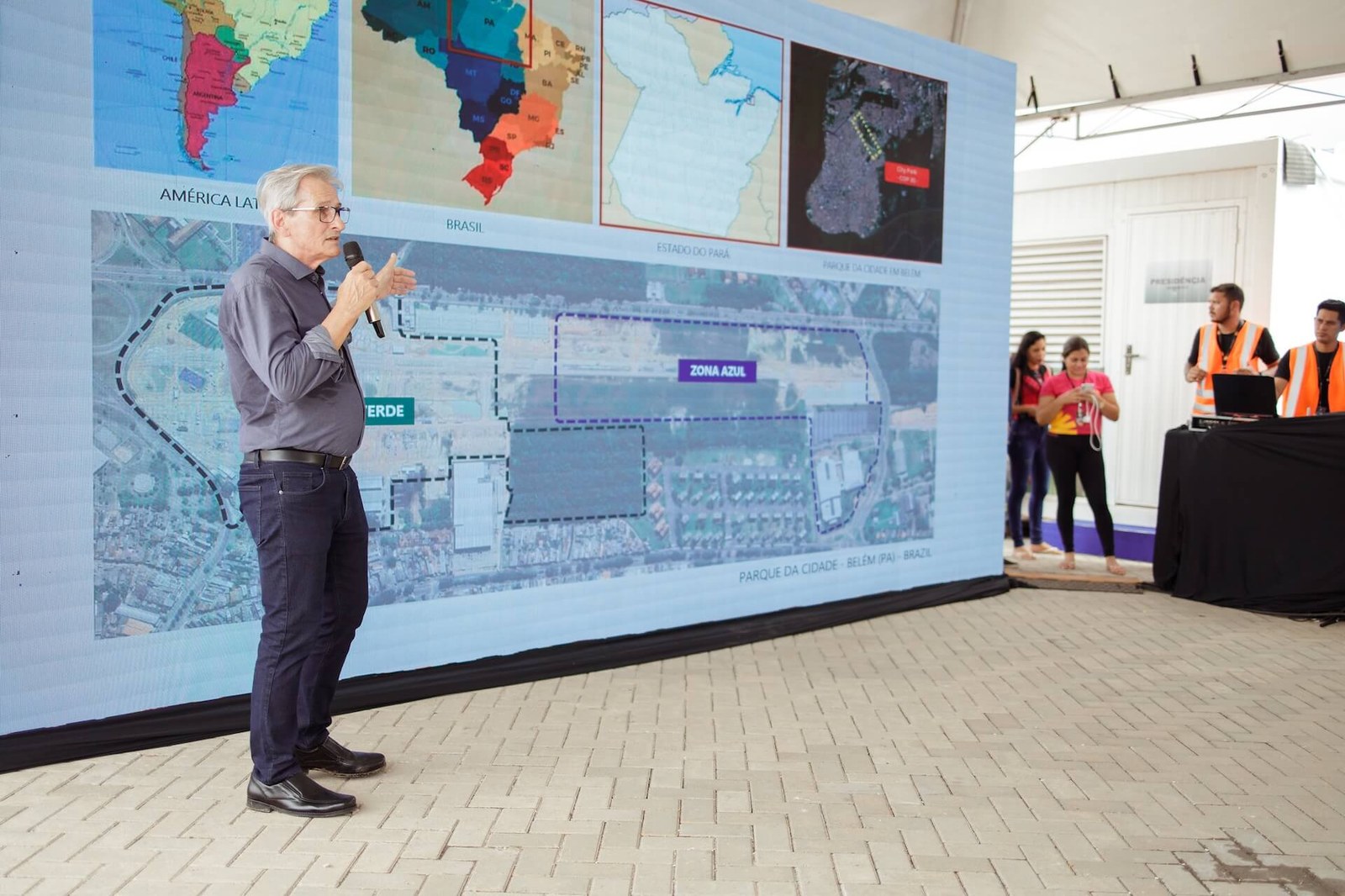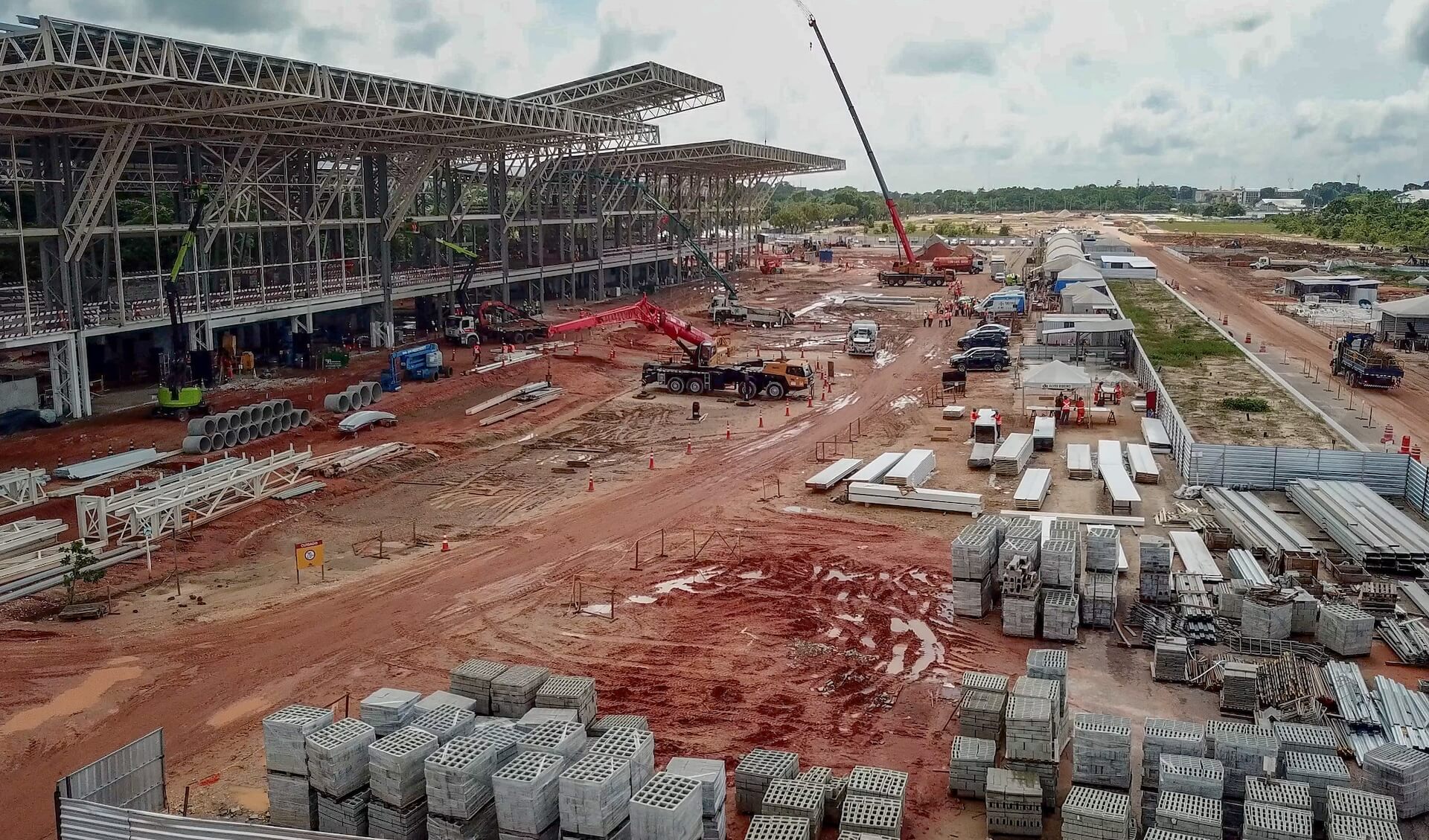Secretary Valter Correia details arrangements for COP30 in Brasil and reinforces commitment to infrastructure
Secretary Valter Correia highlighted the challenges and progress in infrastructure, mobility, and accommodation as Brasil prepares to host COP30. The government is working to ensure that the event leaves a lasting legacy for the Amazon region and the country. “The most important thing is to ensure that infrastructure aligns with the ultimate goal of the conference, which is to secure strong climate agreements,” Correia said.

By Leandro Molina | leandro.molina@presidencia.gov.br
The extraordinary secretary of COP30 discussed the complexities of organizing one of the world’s largest climate conferences, set for November in Belém, Pará. Acknowledging concerns over the city’s capacity, he underscored ongoing efforts to provide adequate infrastructure for international delegations. Correia emphasized the need for realistic expectations, noting that while Belém does not have the infrastructure of global hubs like Dubai or Baku, it offers unique advantages as a gateway to the Amazon.
"Our main objective is to ensure that infrastructure supports the ultimate goal of the conference: reaching meaningful climate agreements. We are working in advance to make sure COP30 is a success and that all participants have a positive experience"
Correia addressed international concerns about Belém’s ability to host such a major event, citing significant investments in mobility, accommodation, and transportation. These include airport renovations, the construction of waterway terminals, and an expansion of the hotel network. “Belém is undergoing a major transformation, with upgrades to roads, ports, and large hotels,” he said. Key projects include airport modernization, hotel construction, and improvements to roads and transit hubs.
To ease urban mobility, officials are developing a plan that includes exclusive traffic lanes, road reversals, and incentives for remote work during the conference. School vacations and reduced in-person government operations will also help limit congestion. “We are implementing a mobility plan with exclusive lanes, traffic adjustments, and strategic measures for the COP period,” Correia explained.
Accommodation and logistics challenges

Correia expressed concern over hotel capacity, noting that the Ministry of Tourism (Ministério do Turismo) has invested nearly R$300 million in modernizing the existing network and building new hotels. The project includes the modular "Vila de Líderes," which will feature more than 400 apartments. Two cruise ships will also be docked in the port of Outeiro to accommodate delegations. “The ships will remain at the port, with dedicated and free transportation to the event, ensuring a smooth and efficient logistics process,” he explained.
Regarding steep hotel prices advertised on some booking platforms, Correia said the government is in discussions with the hospitality sector to prevent price gouging. “We are making hotels aware of the negative impact that excessive pricing could have on the region’s tourism industry,” he said. An official booking platform, set to launch in March, will centralize reservations for delegates.
Security and logistics for government leaders
Security remains a top priority for COP30 organizers, with federal, state, and municipal agencies working together to ensure a safe event. “Belém will be the safest place in Latin America during COP30,” Correia assured.
He also noted that heads of state may be housed in designated hotels to streamline security operations, though accommodations will be tailored to each delegation’s specific needs. “Some countries require more complex security arrangements, and we are addressing all necessary protocols,” he explained.
The secretary projected a total attendance of 40,000 to 50,000 people during the days of the event, with a 12,000 peak during the Summit of Heads of State. He highlighted that separating the official negotiations from the summit will help reduce pressure on the local infrastructure. “When we separate the summit from the negotiations, the number of participants at the peak drops from 34,000 to 12,000, which relieves the demand for accommodation and transportation,” he said
On potential protests, Correia demonstrated ease. “"This is an organic process in a democratic system, and I don't see it as an issue," he said, noting that previous COP editions in cities like Baku and Dubai also saw protests, and Brasil is prepared to guarantee the safety of all participants.
Investments and legacy
The Brazilian government is allocating BRL 6 billion to COP30-related infrastructure and security projects. Correia emphasized that beyond hosting a successful conference, these investments will leave a long-term economic and tourism boost for Belém and the Amazon region. “We are making investments that will transform Belém into a hub for tourism and business, with modern infrastructure and improved capacity to host major events,” he said.
In March, the government will meet with foreign embassies to provide updates on preparations and address concerns about logistics and security.
Correia reaffirmed Brazil’s commitment to hosting a high-level COP30, in line with President Luiz Inácio Lula da Silva’s vision of holding the conference in the heart of the Amazon. “Our main objective is to ensure that infrastructure supports the ultimate goal of the conference: reaching meaningful climate agreements. We are working in advance to make sure COP30 is a success and that all participants have a positive experience,” he concluded.
English version: Bárbara Menezes

